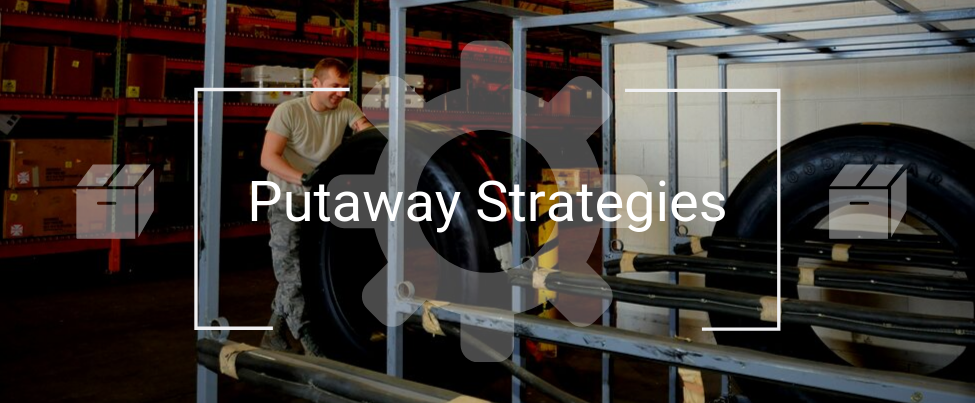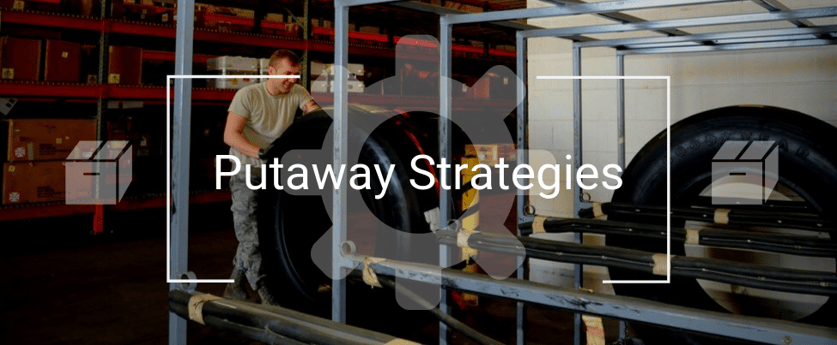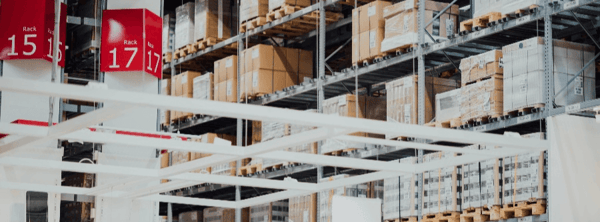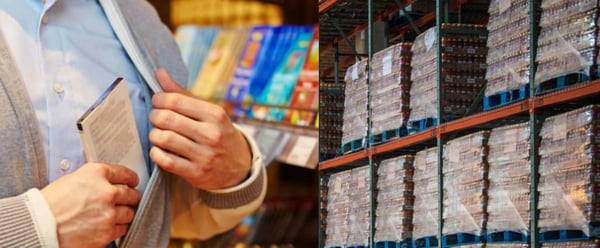How your putaway strategy can impact your business growth


A good warehouse management system implementation should help you to ensure that products and stock automatically move to their planned destination location within your warehouse.
Your location-level putaway strategy will inform this part of your implementation, and ensure your inbound shipments arrive in their appropriate storage spaces.
The contribution of putaway to your business growth:
Your business growth, as a 3PL, importer, or consumer goods supplier, whether small or large, can be achieved using a growth strategy like the ones listed below:
Market Penetration
Increasing market share using existing products and extending your reach within the market to sell more.
Market Development
Selling existing products in a new market to increase profits.
Product Development
Expansion of a product line or addition of new features to increase sales and profits.
Diversification
Selling new products into new markets following extensive market research.
Which you choose depends on your business’ financial situation, the competition, government regulation, and more.
What all of the above strategies have in common to Warehouse Managers, however, is that they require space, capacity, and efficient organisation to effectively get in what you need to put out.
How does your putaway strategy support these growth strategies?
However your business is growing, your ERP likely does not let you sell inventory that you do not physically have, or that is not logged on your inventory lists. Speeding up the fulfilment process with an effective putaway strategy allows you to process, input, and track your stock in logical and effective ways.
Streamlining your putaway process is akin to carefully planning city roads – smoother traffic triggers a chain reaction improving workday productivity, reducing traffic incidents, injuries and accidents, and reducing the rush hour chaos.
This is how you putaway strategy supports your business growth:
Warehouse Capacity
Your putaway strategy, driving a rational and structured approach to storage and access to goods, can help you to optimise the space in your warehouse according to your requirements and highest traffic, and improve your use of space in a product-focused way.
This means you can get more into the space available, and ultimately sell more without needing to expand you warehouse premises.
Stock Availability
Stock availability is a major consideration for any growing business, and ensuring you have stock on hand is a two-part problem:
- Knowing that your physical inventory is quickly and easily accessible, and has been logged and packed accurately
- Knowing that incoming shipments will be processed efficiently and in time to deliver the stock to your customers.
Your putaway process ensures that both these boxes are checked.
Reduce Damage
A putaway strategy should help you to store products and goods in a way that reduces your losses due to damage, whether by human error, storage damage, or display.
Improving your putaway strategy helps to ensure that the number of damaged goods within your warehouse – and leaving it bound for customers – is reduced drastically, improving customer satisfaction and saving you money on losses.
Reduce Travel
Your products should travel to your receiving bay, and then follow the putaway strategy to be stored, packed, and tracked. The less handling the goods go through, the better they are cared for, and this, in-turn, ensures a smooth transition of a quality product to a happy customer.
Again, your losses are reduced, your customers are satisfied, and fewer items are wasted in the process.
Reduce Aisle Congestion
Just like roads, your warehouse needs smooth paths to put away and access your goods.
The faster you can access the product, the faster you can fulfil your orders. Efficiency, speed, and accuracy are critical here – and your aisle health is a primary target for improvement.
A growing business is one that has smooth procedures, seamless processes, and a direct, simple way of getting goods in and out without excessive delays. Measurement is critical to ensure that your putaway strategy helps you achieve a perfect balance for your business.
What else can a WMS do for you? See how Kolok improved their warehouse labour by 50% with a well-implemented WMS:
Read the Kolok Case Study to get a full view on how the WMS features you implement can impact your input, output, and bottom line.
TAGS
- WMS (51)
- Warehouse Best Practice (46)
- Implementing a WMS (29)
- Managing your warehouse (19)
- Omni Channel (18)
- eCommerce (18)
- Blog (16)
- Supply Chain Best Practice (16)
- Customer Journey (9)
- Mid-Level (8)
- Warehouse optimisation (7)
- General Tips (5)
- Industry General (5)
- Information (5)
- Trends (5)
- managing your Supply Chain (5)
- saudi arabia (5)
- Press Release (4)
- smart warehouse (4)
- 3PL (3)
- News (3)
- ERP (2)
- Entry-level (2)
- ROI (2)
- Case Study (1)
- OMS (1)
- Picking (1)
- Solution-Specific (1)
- Transport Management System (1)
Take A Look At The Results Of A Successful WMS Implementation.
See how Tarsus Distribution, in collaboration with SCJ boost overall efficiency by 60%




